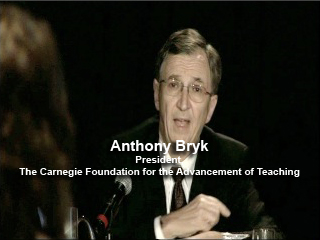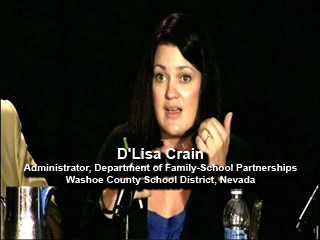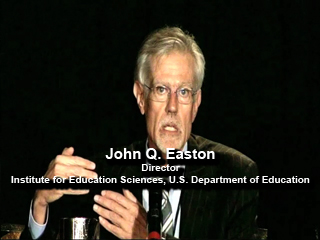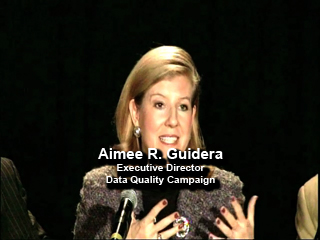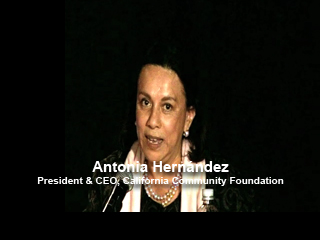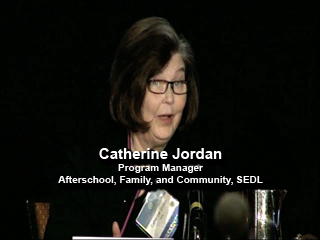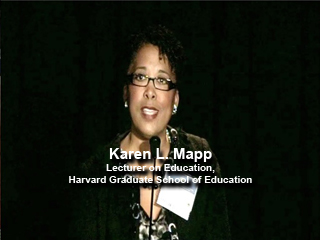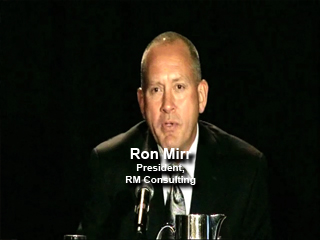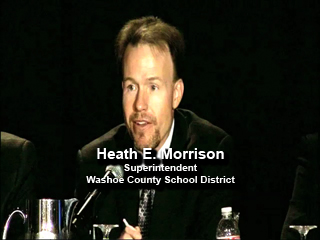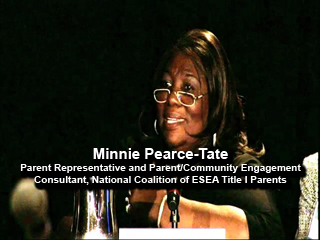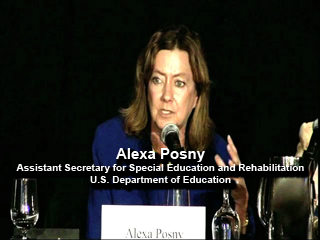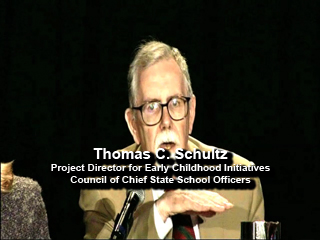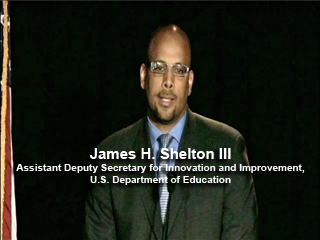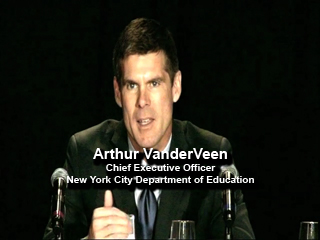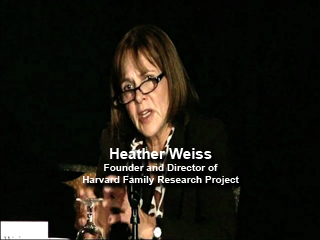Presenter Bios
ROBERT BALFANZ
Director, Everyone Graduates Center, Johns Hopkins University, Baltimore, Maryland
Robert Balfanz is the director of the
Everyone Graduates Center, a research scientist at the Center for Social Organization of Schools, and co-director of the Talent Development Middle and High School, which is currently working with more than 100 high-poverty secondary schools to develop, implement, and evaluate comprehensive whole school reforms. He is also co-operator of the Baltimore Talent Development High School, an Innovation High School run in partnership with the Baltimore City Public School System. Balfanz has published widely on secondary school reform, high school dropouts, early warning systems, and instructional interventions in high-poverty schools. His recent work includes
Locating the Dropout Crisis (2004), a report he co-authored with Nettie Legters in which they identify the number and location of high schools with high dropout rates, and
What Your Community Can Do to End Its Dropout Crisis (2007), a practical guide for addressing dropout issues. Balfanz is the first recipient of the Alliance for Excellent Education’s Everyone a Graduate Award.
CHARLOTTE BOYLE
Superintendent, Creighton School District, Phoenix, Arizona
Charlotte Boyle is the superintendent of Creighton School District, a small urban community in Phoenix, Arizona. Creighton District is in the third year of a 5-year partnership with the Ellis Center for Educational Excellence and WestEd using WestEd’s
DistrictsMovingUp. To encourage family engagement and provide additional support for home-school connections, the district has implemented a standards-based school improvement approach that incorporates strategic parental involvement practices through Academic Parent-Teacher Teams (APTT). This program has proved to be highly successful. As an adjunct faculty member at Arizona State University (ASU), Boyle shares the success of DistrictsMovingUp and her knowledge and skill as a practicing superintendent with educators preparing to be administrators. She is the recipient of the University Council for Educational Administration Excellence in Education Award. Boyle has also served as a teacher, principal, and assistant superintendent for educational services. She holds a doctorate in administration and supervision from ASU and received master and bachelor of arts degrees from Western New Mexico University. She has also studied at the Harvard Graduate School of Education and at the University of London.
ANTHONY S. BRYK
President, The Carnegie Foundation for the Advancement of Teaching, Stanford, California
Anthony Bryk is the ninth president of the
Carnegie Foundation for the Advancement of Teaching and leads the foundation’s efforts to strengthen the research and development infrastructure for improving teaching and learning. Before assuming the presidency, he held the Spencer Chair in Organizational Studies in the School of Education and the Graduate School of Business at Stanford University. He came to Stanford from the University of Chicago, where he was the Marshall Field IV Professor of Urban Education in the sociology department and where he helped found the Center for Urban School Improvement, which supports reform efforts in the Chicago Public Schools. Bryk is also the founding director of the Consortium on Chicago School Research, a federation of research groups that has produced a range of studies to advance and assess urban school reform. His most recently published book, of which he is a co-author, is
Organizing Schools for Improvement: Lessons from Chicago (2010), which synthesizes 15 years of evidence from Chicago on how the organization of schools and community context influences the capacity to enhance student engagement and advance student learning. Bryk was awarded the Thomas B. Fordham Foundation Prize for Distinguished Contributions to Educational Scholarship and the Distinguished Career Contributions Award from the American Educational Research Association. Most recently, Boston College conferred an honorary doctorate of Humane Letters on him for his contributions to educational reform. Bryk holds a doctorate from Harvard University and a bachelor of science degree from Boston College.
D’LISA CRAIN
Administrator, Department of Family-School Partnerships, Washoe County School District, Reno, Nevada
D’Lisa Crain is the administrator for
Washoe County School District’s Department of Family-School Partnerships, overseeing the district’s strategic plan to engage families in the education of their children, which includes parental involvement facilitators, the District Parent Involvement Council, professional development for administrators, using data-driven practices, and Parent University. Prior to joining the district, Crain was the grant administrator for the Nevada State Parental Information and Resource Center (PIRC) in Reno, Nevada, a development director for a health-related nonprofit organization, and a marketing director for a construction and engineering company. She was recently a presenter in the U.S. Department of Education webinar
Data Driven: Making Student and School Data Accessible and Meaningful to Families. She has presented at numerous educational conferences including the National PTA, Education Trust, National PIRC Conference, the Nevada State Counselor’s Conference, the Nevada State PTA Convention, and the Nevada State Parent Involvement Summit. She serves as an advisory member to the Nevada State Parent Involvement Council and the Nevada State PTA Board of Managers. Crain holds a master of arts in education, a bachelor of arts in public relations, and a Nevada State teaching credential.
JOHN Q. EASTON
Director, Institute of Education Sciences, U.S. Department of Education, Washington, DC
John Easton is the director of the
Institute of Education Sciences (IES), the research arm of the U.S. Department of Education. IES includes the National Center for Education Statistics, the National Center for Education Evaluation and Regional Assistance, the National Center for Education Research, and the National Center for Special Education Research. Before joining IES, Easton was executive director of the Consortium on Chicago School Research at the University of Chicago. Throughout his career, he has also served in various research capacities including as the director of the Department of Research, Analysis, and Assessment for Chicago Public Schools (CPS); as the director of research for the Chicago Panel on School Policy, where he led a study on the effects of decentralization on CPS; and as a member of the National Assessment Governing Board, which sets policies for the National Assessment of Educational Progress (NAEP). In 2008, he was awarded a presidential citation from the American Educational Research Association for “research leadership and evaluation studies focused on improving the nature and quality of education in a large urban city.” Easton holds a doctorate in measurement, evaluation, and statistical analysis from the University of Chicago; a master’s degree from Western Washington University; and a bachelor’s degree from Hobart College. He is the author or coauthor of numerous reports and articles as well as two books:
Charting Chicago School Reform: Democratic Localism as a Lever for Change (1998) and
Organizing Schools for Improvement: Lessons from Chicago (2010).
AIMEE R. GUIDERA
Executive Director of the Data Quality Campaign, Washington, DC
Aimee Guidera is Executive Director of the
Data Quality Campaign, for which she manages a growing partnership among national organizations collaborating to improve the quality, accessibility, and use of education data to improve student achievement. Working with 10 Founding Partners, Aimee launched the Data Quality Campaign in 2005 with the goal of every state having a robust longitudinal data system in place by 2009. The Campaign is now in the midst of its second phase focusing on State Actions to ensure effective data use. Guidera joined the National Center for Educational Accountability as Director of the Washington, DC office in 2003. During her eight previous years in various roles at the National Alliance of Business, Guidera supported the corporate community's efforts to increase achievement at all levels of learning. As National Alliance of Business Vice President of Programs, she managed the Business Coalition Network, comprised of over 1,000 business led coalitions focused on improving education in communities across the country. Prior to joining the Alliance, Guidera focused on school readiness, academic standards, education goals and accountability systems while in the Center for Best Practices at the National Governors Association. She taught for the Japanese Ministry of Education in five Hiroshima high schools where she interviewed educators and studied the Japanese education system immediately. Guidera holds a master’s degree in public policy from Harvard University’s John F. Kennedy School of Government and a bachelor’s degree from Princeton University’s Woodrow Wilson School of Public and International Affairs.
CARL HARRIS
Deputy Assistant Secretary for Policy and Strategic Initiatives, U.S. Department of Education
Carl Harris is the deputy assistant secretary for policy and strategic initiatives for the
U.S. Department of Education in Washington, DC. Harris previously served as superintendent of Durham Public Schools. He began leading the North Carolina district with its 46 schools and nearly 32,000 students in July 2006. Prior to becoming superintendent, Harris served the district as deputy superintendent and as assistant superintendent of curriculum and instruction. A native of Franklin County, North Carolina, he also served as superintendent of that public school system, where he was responsible for 13 schools, more than 7,700 students, 965 employees, and an operating budget of more than $1 million. During his education career, Harris has served in a variety of roles including classroom teacher, coach, and district office administrator. He has a bachelor’s degree in health and physical education from Southwest State University in Marshall, Minnesota, a master’s degree in education and administration from East Carolina University in Greenville, North Carolina, as well as a doctorate in education administration from North Carolina State University in Raleigh. He is a graduate of 2002 class of The Broad Superintendents Academy.
ANTONIA HERNÁNDEZ
President and Chief Executive Officer, California Community Foundation, Los Angeles, California
Antonia Hernández is the president and chief executive officer for the
California Community Foundation (CCF). Recognized nationally for her commitment toward the betterment of underserved communities in Los Angeles and beyond, she oversees all operational and programmatic aspects of the foundation's activities. Before joining CCF, Hernández was president and general counsel of the Mexican American Legal Defense and Educational Fund (MALDEF). An expert in philanthropy, civil rights, and immigration issues, Hernández began her legal career as a staff attorney with the Los Angeles Center for Law and Justice and worked as regional counsel to the U.S. Senate Committee on the Judiciary in Washington, DC. Hernández serves on the boards of the American Automobile Association, the Automobile Club of Southern California, the Blue Shield of California Foundation, the Center for Budget and Policy Priorities and the Local Initiatives Support Corporation (LISC). She also currently serves on the Commission on Presidential Debates, the Institute of Politics at Harvard University's John F. Kennedy School of Government, the John F. Kennedy Library Foundation Profile in Courage Award Committee, and the University of California-Los Angeles (UCLA) School of Law Board of Advisors. Hernández is a member of the State Bar of California, District of Columbia Bar, American Bar Association, and the Mexican American Bar Association of Los Angeles and a fellow of the American Law Institute. She holds a law degree as well as a bachelor's degree in history from UCLA.
ROBERT L. HUGHES
President, New Visions for Public Schools, New York, New York
Robert Hughes is the president of
New Visions for Public Schools. Under his leadership, New Visions has created 96 public schools in New York City, provided mentoring services to 633 new principals, developed school-based certification programs for teachers and principals, and created an inquiry process now in use in 1,500 New York City public schools. An attorney, Hughes has worked on public education issues for his entire career. He served as co-counsel in the case
Campaign for Fiscal Equity v. The State of New York, challenging the constitutionality of New York State’s educational finance system. He clerked for the Honorable Shirley Abrahamson, justice of the Wisconsin Supreme Court. He has authored articles on public education for the
New York Times, the Association of the Bar of the City of New York, the
Yale Law & Policy Review, and the
Connecticut Law Review. He served as chair of the Committee on Education and the Law at the Association of the Bar of City of New York and as chair of the board for Advocates for Children of New York, where he was previously executive director. He was also on the board of the Center for Architecture. He currently serves on the boards of the Campaign for Fiscal Equity, the Fund for Teachers, and the TransAtlantic School Innovation Alliance, a partnership between the New York City public schools and the British government. Hughes received his law degree from Stanford Law School and his undergraduate degree from Dartmouth College.
JACQUELINE JONES
Senior Advisor to the Secretary for Early Learning, U.S. Department of Education, Washington, DC
Jacqueline Jones is the senior advisor to the secretary for early learning at the
U.S. Department of Education. Previously, she served as the assistant commissioner for the Division of Early Childhood Education at the New Jersey State Department of Education. Prior to her state government work, Jones worked for 16 years at the Educational Testing Service (ETS) as a senior research scientist and director of early childhood research and development. In addition, she has been a visiting associate professor at Harvard University and a visiting scholar for the National Assessment of Educational Progress (NAEP) at ETS. Jones has directed numerous federally- and foundation-funded projects on early childhood learning. She also has authored many publications, given numerous conference presentations, and lectured extensively on this subject. Jones earned her doctorate and master’s degrees in communication science and disorders from Northwestern University, and has a bachelor of arts in speech pathology from Hunter College.
CATHERINE JORDAN
Program Manager, Afterschool, Family, and Community, SEDL, Austin, Texas
As the program manager of
SEDL’s Afterschool, Family, and Community program, Catherine Jordan oversees the National PIRC Coordination Center, the
National Center for Quality Afterschool, and the
National Center for Family and Community Connections With Schools. Between 1997 and 2000, Jordan led SEDL’s field-based research and development of home, school, and community partnerships, which culminated in the publication of
Creating Collaborative Action Teams: Working Together for Student Success (2000). Prior to joining SEDL, she served as executive director of the McLennan County Youth Collaboration–Communities In Schools, Inc., in Waco, Texas, where she developed the nationally recognized afterschool program “Lighted Schools” as a part of the Pew Charitable Trust’s Partnership for Civic Change. She served as a regional associate at the National Center for Community Education in Flint, Michigan, and on its National Training Task Force for the 21st Century Community Learning Centers. Jordan has authored and co-authored numerous materials on family and community engagement and afterschool programs including
Working Systemically in Action: Engaging Family and Community (in press),
A Practitioner’s Guide: Building and Managing Quality Afterschool Programs (2009), and the multimedia
Afterschool Training Toolkit (2008). She holds a master’s degree in public service administration from Tarleton State University and a bachelor’s degree in journalism and history from Baylor University.
JOAN LOMBARDI
Deputy Assistant Secretary and Inter-Departmental Liaison for Early Childhood Development, Administration for Children and Families, U.S. Department of Health and Human Services, Washington, DC
Joan Lombardi is the deputy assistant secretary and inter-departmental liaison for early childhood development for the
Administration for Children and Families, U.S. Department of Health and Human Services. With 30 years of experience, she is a national and international expert on early childhood who has made significant contributions to the field as an innovative leader and policy advisor to national and international organizations. Her previous experience includes serving as the deputy assistant secretary for Policy and External Affairs, the first associate commissioner of the Child Care Bureau, the project director of the Secretary’s Advisory Committee on Head Start, and a research professor at Georgetown’s Public Policy Institute. In addition, Lombardi was the founding chair of the Birth to Five Policy Alliance, the founding coordinator for Global Leaders for Young Children, and a founding board member for Global Action for Children. She has been an active member of numerous boards and institutions including the Buffett Early Childhood Fund, the Bill and Melinda Gates Foundation, UNICEF, Voices for America’s Children, and the Firelight Foundation. Lombardi holds a doctorate in human development education from the University of Maryland and a master’s degree in early childhood education from Boston College. She is the author of
Time to Care: Redesigning Child Care to Promote Education, Support Families, and Build Communities (2003) and co-editor of
A Beacon of Hope: The Promise of Early Head Start for America’s Youngest Children (2004).
KAREN L. MAPP
Lecturer on Education, Harvard Graduate School of Education, Cambridge, Massachusetts
Karen Mapp is a lecturer on education at the
Harvard Graduate School of Education (HGSE) and the faculty director for the Education, Policy, and Management Master’s Program. She is also co-coordinator of the Community Organizing and School Reform Research Project at HGSE. Mapp’s research and practice expertise is in the areas of educational leadership and partnerships among educators, families, and community members that support student achievement. She joined HGSE after serving as the interim deputy superintendent for family and community engagement for the Boston Public Schools (BPS). While working with the BPS, she continued to fulfill her duties as president of the Institute for Responsive Education (IRE). Mapp is the author of “Having Their Say: Parents Describe Why and How They Are Engaged in Their Children’s Learning” (
School Community Journal, 2003). She is a co-author of
A New Wave of Evidence: The Impact of School, Family, and Community Connections on Student Achievement (2002),
Beyond the Bake Sale: The Essential Guide to Family-School Partnerships (2006), and “Debunking the Myth of the Hard-to-Reach Parent” in the
Handbook of School-Family Partnerships (2009). Mapp holds a doctorate and master’s degree of education from Harvard University in administration, planning, and social policy; a master’s in counselor education from Southern Connecticut State University; and a bachelor’s degree in psychology from Trinity College in Hartford, Connecticut.
CARMEL MARTIN
Assistant Secretary for Planning, Evaluation and Policy Development, U.S. Department of Education, Washington, DC
As the assistant secretary for planning, evaluation and policy development, Carmel Martin serves as a senior adviser to Secretary Arne Duncan on K–12 and postsecondary
education policy and oversees the Office of Planning, Evaluation and Policy Development, which coordinates policy and budget activities with the
U.S. Department of Education’s principal offices as well as with the Office of Management and Budget, the House and Senate education committees, and state education agencies. Prior to coming to the Department of Education, Martin served as general counsel and chief education adviser to Senator Edward Kennedy for his work on the Health, Education, Labor, and Pensions Committee; at the Center for American Progress as the associate director for domestic policy; and in the U.S. Senate as chief counsel and senior policy adviser to Senator Jeff Bingaman and as special counsel to Senator Tom Daschle. Throughout her years in Congress, she worked on legislation related to education, welfare, and other issues important to children and families. Early in Martin’s career, she worked as a trial attorney for the Civil Rights Division of the Educational Opportunities Section at the Department of Justice. She also worked in the private sector as a member of Hogan and Hartson’s education practice, where she counseled and represented school districts and institutions of higher education across the country. Martin received a juris doctor from the University of Texas School of Law and a master’s degree in public affairs from the LBJ School of Public Affairs. After graduate school, she was a law clerk to the Honorable Thomas Reavley, U.S. Court of Appeals for the Fifth Circuit.
RON MIRR
President, RM Consulting, Iowa City, Iowa
Ron Mirr is the president of RM Consulting, located in Iowa City, Iowa. In 1995 Mirr wrote and received one of the initial Parental Information and Resource Center (PIRC) grants from the U.S. Department of Education. Until 2003, he led the Iowa PIRC. He is currently a consultant with the Iowa State PIRC and also works with the Alabama and Wyoming State PIRCs. Through the Iowa PIRC, Mirr has helped integrate parental engagement as an indicator of effectiveness into the Iowa state standards for assessing administrators and teachers. He and the Iowa PIRC team also support efforts to monitor the training and technical assistance for state Title I accreditation teams to help them monitor parental involvement at the local level and build capacity among schools through an evidence-based model for family engagement—Iowa’s Sustaining Parent Involvement Network (iSPIN). The iSPIN model is based on the Academic Development Institute’s Solid Foundation program and enhanced with additional research-based practices. It creates a structure for family engagement that can lead to better outcomes for schools, families, and youth by requiring a minimum set of commitments from participating schools for at least 2 years. The iSPIN program was recently included in a report by the National Family, School, and Community Engagement Working Group for its “breakthrough strategies.” The report cited iSPIN as one of 12 national examples considered to be “leading innovations in the family involvement field to advance student learning.” Mirr has presented at national and international conferences and currently provides training for the Iowa Department of Education and the Iowa Department of Public Health as well as the U.S. Department of Education and the White House Office of Drug Control Policy. In the last few years, Mirr has focused his efforts on helping schools address barriers to learning, primarily in the areas of substance abuse prevention, improving school climate, engaging parents in school-based efforts to improve student achievement, and increasing student “connectedness” to schools. Mirr holds a master’s degree in social work.
HEATH E. MORRISON
Superintendent, Washoe County School District, Reno, Nevada
Heath Morrison is the superintendent of
Washoe County School District in Reno, Nevada. Before coming to Nevada, Morrison was community superintendent for some of the most diverse and economically impacted areas for the Down County Consortium, Montgomery County Public Schools, Maryland. He has served as the principal of John Hanson Middle School and Thomas Stone High School in Charles County, Maryland, and as an adjunct instructor with McDaniel College, where he taught aspiring administrators. Last year, he completed his tenure as co-chair of the National Association of Secondary School Principals’ task force on principal preparation. Morrison is the recipient of the Outstanding New Professional Award from the University of Maryland and the Distinguished Educational Leader Award from the Washington Post Company, and was named Maryland’s Principal of the Year in 2004. His work has been published in
Principal Leadership and featured in
Best Practices of Award-Winning Secondary School Principals (2006), published by Corwin Press. Morrison has presented at numerous state and national conferences on eliminating the achievement gap through data-driven decision making and leadership development. In 2008 Morrison was accepted into the Broad Superintendent Academy. He holds a doctorate in educational policy and planning and a master’s degree in educational administration from the University of Maryland as well as a bachelor’s degree in government from the College of William and Mary.
MINNIE PEARCE-TATE
Parent Representative and Parent/Community Engagement Consultant, National Coalition of ESEA Title I Parents, Detroit, Michigan
Minnie Pearce-Tate has been a parent activist and organizer specializing in Title I and community engagement for more than 25 years. Currently a parent/community engagement consultant
with the
Detroit Public Schools, she is a leading voice for parents at the local, regional, and national levels. Pearce-Tate is dedicated to ensuring that all students have an opportunity
for a quality education and that parents have a role in the educational decisions that affect their children. Pearce-Tate’s many accomplishments include serving as the first parent
on the national study team for the Temple University Laboratory for Student Success, one of the U.S. Department of Education’s regional laboratories. She also served as one of two
parents during the rule-making process for the current Elementary and Secondary Education Act (ESEA). Pearce-Tate currently serves on the board of directors of the
National Council on Educating Black Children and is leading POWER in Education, an initiative to ensure that the voices of parents are included in the current reauthorization of the ESEA.
ALEXA POSNY
Assistant Secretary for Special Education and Rehabilitative Services, U.S. Department of Education, Washington, DC
Alexa Posny is the assistant secretary for special education and rehabilitative services at the
U.S. Department of Education. In this position, she helps shape policy and management issues affecting special education and rehabilitative services and serves as the principal adviser to Secretary Arne Duncan on special education for individuals in preK, elementary, secondary, and postsecondary schools. Previously at the Department of Education, Posny was the director of the Office of Special Education Programs. She has also held numerous positions at the Kansas Department of Education including commissioner of education, deputy commissioner of education, and state director of special education. Earlier in her career, she was the director of special education for the Shawnee Mission School District in Shawnee Mission, Kansas, and a teacher at the elementary, middle, high school, and university levels. Posny has served on the board of directors for the Chief State School Officers and the National Council for Learning Disabilities and chaired the National Assessment Governing Board’s Special Education Task Force. She received the Kansas High School Activities Association Governor’s Award, was named Administrator of the Year by the Kansas Association of Educational Office Professionals, and received the Outstanding Contributor Award for the state of Kansas from the Council for Exceptional Children. Posny earned a doctorate in educational administration and a master’s degree in behavioral disabilities from the University of Wisconsin at Madison, and received a bachelor’s degree in sociology and psychology from the University of Wisconsin at Stevens Point.
LEAH RAPHAEL
2010–2011 Washington Teaching Ambassador Fellow, U.S. Department of Education, Charlotte Secondary School, Charlotte, North Carolina
Leah Raphael is a Washington Fellow in the
Teaching Ambassador Fellowship program of the
U.S. Department of Education. She says, “Much of my early training as an educator came informally, as a young volunteer in my mother’s public school classrooms.” Raphael began her career in the Los Angeles Unified School District (LAUSD) as an after-school program coordinator, an instructional specialist, and a middle school teacher. She also was a Graduate Opportunity Fellow at the University of California, Los Angeles, where she pursued an action-research project as part of the master’s thesis process. The project involved exploring an innovative, formal dialogic practice called Way of Council. Every Friday, she and her students met in council circle as they struggled to build conceptual bridges between their life experiences and language arts and social studies. Raphael presented evidence of her students’ tremendous academic and personal growth as a result of this project at the 7th annual conference of the California Association of Freirean Educators. She also facilitated a relationship between her small learning community at John Liechty Middle School and LAUSD’s Council Practitioners Center, allowing the middle school to receive training, mentoring, and financial support to implement the Council program on a large scale. More recently, Raphael has served as a learning teams facilitator, a School Decision-Making Committee representative, and a Teacher Education for the Advancement of a Multicultural Society (TEAMS)/AmeriCorps Teaching Fellow. She received her bachelor’s degree from Wesleyan University.
THOMAS C. SCHULTZ
Project Director for Early Childhood Initiatives, Council of Chief State School Officers, Washington, DC
Tom Schultz is the project director for
Early Childhood Initiatives at the Council of Chief State School Officers (CCSSO), where he works with states to improve learning opportunities and outcomes for young children. Prior to joining the CCSSO, Schultz worked at the Pew Charitable Trusts, where he co-authored a recently completed report,
Taking Stock: Assessing and Improving Early Childhood Learning and Program Quality, based on the work of the National Early Childhood Accountability Task Force. From 1995–2005, he served as a senior manager in the Head Start Bureau, where he led the development of initiatives in the areas of child assessment, program evaluation, professional development, family and community partnerships, and collaborations with other early care and education programs. He has also worked as a research manager in the U.S. Department of Education, as an early childhood project director with the National Association of State Boards of Education, as a Head Start program team leader in the Region V Office of Child Development, and as a teacher in the Chicago Public Schools. Schultz has served on the Secretary’s Advisory Committee on Head Start Quality and Expansion and on the editorial board of the
Early Childhood Research Quarterly. He holds degrees from the Harvard Graduate School of Education and Oberlin College.
JAMES H. SHELTON III
Assistant Deputy Secretary for Innovation and Improvement, Office of Innovation and Improvement, U.S. Department of Education, Washington, DC
Jim Shelton is the assistant deputy secretary for innovation and improvement for the
Office of Innovation and Improvement,
U.S. Department of Education. In this position, he manages a portfolio that includes most of the Department’s competitive teacher quality, school choice, and learning technology programs. Previously, Shelton served as a program director for the education division of the Bill & Melinda Gates Foundation, managing the foundation’s national programs and work in the northeastern United States. Shelton has also been a partner and the East Coast lead for NewSchools Venture Fund and co-founded LearnNow, a school management company that later was acquired by Edison Schools. In addition, he spent more than 4 years as a senior management consultant with McKinsey & Company in Atlanta, Georgia, where he advised CEOs and other executives on issues related to corporate strategy, business development, organizational design, and operational effectiveness. Upon leaving McKinsey, he joined Knowledge Universe, Inc., where he launched, acquired, and operated education-related businesses. Shelton holds master’s degrees in business administration and education from Stanford University and a bachelor’s degree in computer science from Atlanta’s Morehouse College.
BILL TUCKER
Managing Director, Education Sector, Washington, DC
Bill Tucker is the managing director for Education Sector, an independent, nonpartisan education policy think tank. In his policy work there, he focuses on technology and innovation—specifically assessments, virtual schooling, and the use of data to improve student outcomes. Tucker is a social entrepreneur with a wide range of experience in organizational learning strategies and business models. His most recent work highlights the potential for better student data to bridge school-community-home boundaries and assesses the use of data to help improve day-to-day instruction. He also co-founded SmarterOrg, Inc.; served as Isoph’s chief knowledge officer; managed the training, conference, and publishing operations at CompassPoint Nonprofit Services; and has advised nonprofit organizations such as the American Red Cross, the Land Trust Alliance, and the National Wildlife Federation. He currently serves on the board of directors at Achievement Preparatory Public Charter School in Washington, DC. Early in his career, Tucker managed a middle/high school student volunteer and service-learning program and also served a year in VISTA as a community organizer for an adult literacy program. His recent publications—Beyond the Bubble: Technology and the Future of Student Assessment (2009), Laboratories of Reform: Virtual High Schools and Innovation in Public Education (2007), and an article for Education Next—provide insight and practical knowledge into how to use technology to improve assessment systems and practices and to support increased student learning. Tucker holds a master of business administration and a master’s degree in education from Stanford University and an undergraduate degree from Duke University.
ARTHUR VANDERVEEN
Chief Executive Officer, Office of Innovation, New York City Department of Education, New York, New York
Arthur VanderVeen is chief executive officer for the Office of Innovation at the
New York City Department of Education (NYC DOE). In this position, he leads an initiative to engage 400 schools in a 3-year process to reorganize the schools around personalized models of learning. Prior to this, he managed the administration and development of the NYC DOE’s portfolio of summative and formative assessments and directed the NYC DOE’s Educational Technology Management initiatives. VanderVeen has also held several positions at the College Board, where he helped lead the design and development of the College Board’s comprehensive reform model and led the development of the College Board’s
Standards for College Success in Mathematics and Statistics and English-Language Arts. In addition, he founded and directed ActiveInk Corporation, a curriculum development and publishing company in Austin, Texas, which provided consulting and curriculum development services to state education agencies, K–12 school districts, university programs, and publishers in multiple disciplines. VanderVeen has authored numerous chapters, articles, and presentations on college readiness, assessment design, comprehensive school reform, academic content standards, curriculum development, and alignment methodologies. He holds a doctorate in English from the University of Texas at Austin, a master of divinity from Princeton Theological Seminary, and a bachelor of arts from Colorado College.
HEATHER B. WEISS
Founder and Director, Harvard Family Research Project, Cambridge, Massachusetts
Heather Weiss is the founder and director of the
Harvard Family Research Project (HFRP) and a senior research associate and lecturer at the Harvard Graduate School of Education. HFRP’s mission is to create more effective practices, interventions, and policies to support children’s successful development from birth to adulthood. Weiss testified before the U.S. House of Representatives Committee on Education and Labor at the hearing on the Education Begins at Home Act. She writes, speaks, and advises on programs and polices for children and families and serves on the advisory boards of many public and private organizations. She is also a consultant and advisor to numerous foundations on strategic grantmaking and evaluation. Her latest publications include several articles on her longitudinal study of the ways that family involvement in children’s learning promotes development and school success, a book about how to involve families and communities in children’s learning and development, papers on how to measure and encourage youth participation in afterschool and youth programs, and a paper on the use of data and evaluation in democracies. Weiss received her doctorate in education and social policy from Harvard University and was a postdoctoral research fellow at the Yale Bush Center in Child Development and Social Policy.
GENE WILHOIT
Executive Director, Council of Chief State School Officers, Washington, DC
Before assuming his role as executive director of the Council of Chief State School Officers (CCSSO) in 2006, Gene Wilhoit supported education at the local, state, and national levels. Wilhoit began his career as a social studies teacher in Ohio and Indiana and went on to serve as a program director in the Indiana Department of Education; an administrator in Kanawha County, West Virginia; a special assistant in the U.S. Department of Education; the executive director of the National Association of State Boards of Education (NASBE); the director of the Arkansas Department of Education; and the deputy commissioner and commissioner of the Kentucky Department of Education. He has shepherded finance reform, led equity initiatives, designed and implemented assessment and accountability systems, advanced nationally recognized preschool and technology programs, and reorganized state agencies to focus on service and support. Wilhoit holds a master’s degree in teaching, political science, and economics from Indiana University, Bloomington, and a bachelor of arts degree in history and economics from Georgetown College. He has also studied education administration at the West Virginia College of Graduate Studies. Wilhoit is a member of numerous education organizations, has served on national and state commissions, and has written and spoken on a variety of education issues.
LINDA YARON
2010–2011 Washington Teaching Ambassador Fellow, U.S. Department of Education, Edward Roybal Learning Center, Los Angeles, California
Linda Yaron is a Washington Fellow in the
Teaching Ambassador Fellowship program of the
U.S. Department of Education. As an English teacher in an inner-city high school near downtown Los Angeles, Yaron has spent the last 7 years working to increase opportunities for students to succeed. She “sees education as the pathway out of poverty and towards hope by building skills, knowledge, and a belief in one’s self.” As a teacher, she has participated in various hands-on training programs designed to help foster insight into topics and lessons that can be incorporated into the classroom, including a Fulbright Hays Seminar’s Abroad Project in Brazil on environmental sustainability and National Endowment for the Humanities workshops in Pearl Harbor and the Mississippi Delta. Yaron has also served as a mentor in the California Beginning Teacher and Support Assessment (BTSA) Program, working with new teachers to facilitate their development of curricular strategies, engagement, assessment, and what it means to be an effective teacher in an inner-city school. Yaron received her master’s degrees from the University of California’s Teacher Education Program and Principals’ Leadership Institute and her bachelor’s degrees in human development and literatures of the world from the University of California, San Diego. She also holds a National Boards Certification in English-language arts, teaching credentials in physical education and health, and a California Tier 1 Administrative Services Credential.

